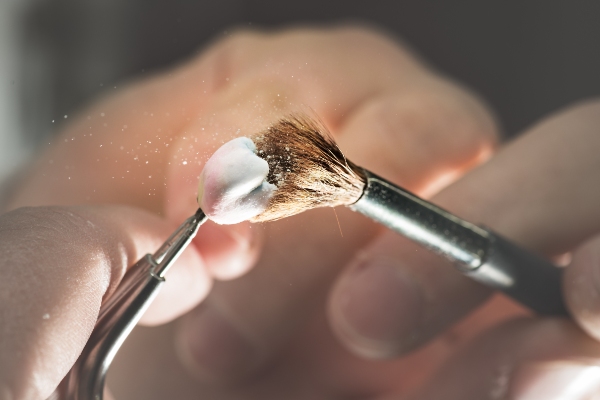 All new denture wearers face a period of adjusting to new dentures, and for many, speaking poses one of the most significant challenges. Fortunately, dentists can offer patients various tips to promote effortless speech.
All new denture wearers face a period of adjusting to new dentures, and for many, speaking poses one of the most significant challenges. Fortunately, dentists can offer patients various tips to promote effortless speech.
Why does adjusting to new dentures include speaking challenges?
Dentures tend to sit differently in the mouth compared with natural teeth. As a result, the tongue falls into new positions that lead to difficulties producing certain sounds and words. In addition, muscles in the face and jaw may move in new ways around prosthetics. These factors can lead to temporary speech changes.
What are some tips to improve speech after getting dentures?
Fortunately, most dental patients adjust naturally to speaking with dentures and re-master pre-denture speech quickly. Dentists can also offer various suggestions to facilitate the process.
Practice counting and reciting the alphabet
Saying numbers and letters aloud is an excellent way to practice shorter sounds and syllables that ultimately combine to create longer phrases. In addition, this exercise can serve as a starting point for improving speaking stamina.
Practice reading out loud
Patients who read books and newspapers aloud while adjusting to new dentures learn to position the tongue and mouth in ways necessary to produce complex sounds in succession. As with any exercise, the mouth and jaw muscles gradually strengthen, and speech becomes more fluid. Choosing text with challenging words, including tongue twisters or technical terms, is particularly beneficial.
Practice singing words
Singing allows new denture-wearers to produce words and sounds at a slower pace than speaking. As a result, individuals can more easily focus on where to position the tongue and activate muscles. In addition, singing allows denture wearers to sustain sounds while listening to determine which corrections lead to improved speech pronunciation.
Practice in front of a mirror
Speaking or singing in front of a mirror is an excellent way to help denture wearers see precisely how mouth and tongue movements affect speech. It can also reveal areas of facial tension that may signify that muscles are weak or overworking.
Perform cheek exercises
Many people experience facial soreness when speaking while adjusting to new dentures because dental prosthetics use previously underused muscles. Therefore, dentists recommend that patients begin facial exercises several weeks before getting new dentures to build facial muscle strength. For example, holding an exaggerated smile for several seconds can help strengthen the muscles necessary for fluid speech while wearing dentures.
Type using voice-activated software
Denture wearers can use speech recognition software programs to help detect incorrect diction and pronunciation. In addition, reading a text and reviewing its transcription can help measure progress by producing a record that reveals where improvement exists or is needed.
Converse with close friends or relatives
Dentists encourage new denture wearers to engage in conversations with close friends and relatives as much as possible during the adjustment period. In addition to promoting confidence from speaking at a conversational pace, patients with new dentures can count on receiving helpful feedback from those close to them.
Conclusion
Dentists can recommend various tips and techniques to help patients speak confidently while adjusting to new dentures. As a result, most people adapt quickly and experience noticeable improvement.
Request an appointment or call Casas Adobes Dentistry at 520-365-0559 for an appointment in our Tucson office.
Recent Posts
Most first-time denture candidates are nervous about adjusting to new dentures. They usually do not know what to expect, and they may wonder if dentures will feel natural.People get dentures for many reasons, such as broken or missing teeth, excessive tooth decay, gum disease, severe tooth pain or trauma, and painful sensitivity to hot and…
The process of adjusting to new dentures takes several weeks. During this time, you may experience some discomfort and self-consciousness. Both partial and complete dentures take some getting used to. Your dentist gives you instructions for denture adjustment, and if you follow them closely, the process should be simple. However, it does require patience as…
In addition to recognizing the new person in the mirror, adjusting to new dentures requires changing some of a person’s former eating habits. Having a full set of great-looking teeth can give one’s confidence a significant boost, but after spending a considerable amount of time without teeth, it can take a little while to learn…


